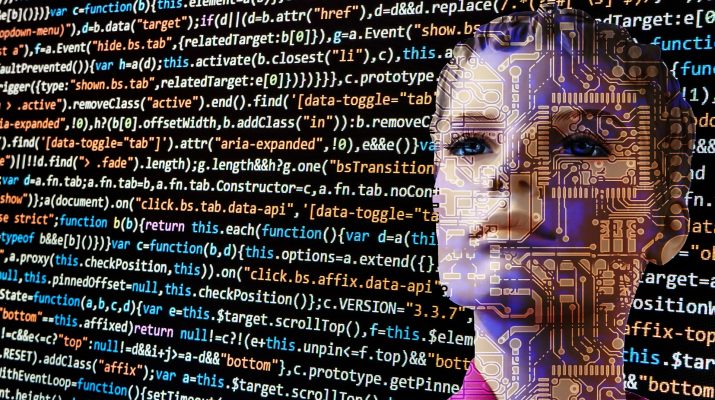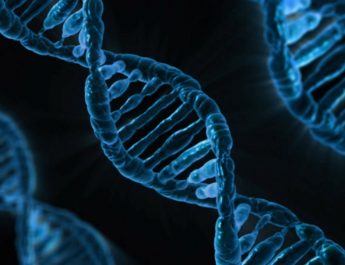Ted Chiang’s The Lifecycle of Software Objects analyzes the struggles and delights of Ana Alvarado and Derek Brooks and their relationships with digients, digital creatures they raise over twenty years. While this book explores many topics relating to ethics and science fiction, Chiang uses the idea of corporations to develop characters and establish specific plot points. Christopher Newfield in “Corporation” recounts the history of corporations in America and the evolution of their significance and control in culture and society. In analyzing how Chiang develops future relationships between humans and digital creatures through the discussion of corporations, the connections between an entities’ contribution to society and freedom and corporations can be further understood and appreciated.
One way The Lifecycle of Software Objects can be seen through an understanding of corporations is through the perspective that an individual’s contribution to society is predominantly measured through their participation in capitalism. Newfield analyzes corporations in America and argues that over the past two centuries, through the legal system and their growing influence in American culture, corporations have created a narrative where an individual’s contribution to society rested solely on their participation in capitalism (Newfield 66). By doing so, people within a community understand each other’s values through the lens of capitalism instead of through their individual and unique contributions to a community. Chiang first introduced this idea when Ana’s digient, Jax, met a digient that solves puzzles. The puzzle-solving digient’s owner said regarding Jax, “Send me a message if he [Jax] ever learns to solve puzzles, I’ll buy a copy (Chiang 68).” This is an early example where the relationship between humans and digital entities begins to shift from an owner-pet relationship where a digient’s value is not quantified through labor, to a relationship where digients are valued based on their labor contribution. From that point on, from companies like Exponential Appliances (Chiang 132) to Binary Desire (107), people’s relationship to digital entities became more transactional and less relational. While this shift in perspective regarding relationships is not made explicit by Chiang, by understanding how corporations and capitalism influence relationships to be more transactional, the change in worldview in Ana and Derek from loving pet owners to ambiguous digient owners who care about digient jobs not only makes sense but can be predicted.
Another way Chiang’s novel can be understood in the context of corporation is in the exploration and question of autonomy. Newfield recounts the seminal cases which laid the foundation for corporations to garner influence in society. At the heart of this evolution is the collection of rights corporations were granted by the courts, including the right to own property, pay taxes, and freedom of expression (Newfield 63, 67). Without being a living, breathing entity, corporations essentially obtained the rights of legal persons, all without the same kinds of accountability a legal person has. This can be seen in bailouts of the banking and auto industry where, despite making choices which negatively impacted people and the economy, those industries were not admonished and instead were given support. In this way, corporations possess a level of autonomy even humans do not possess: one with many benefits and very few levels of accountability. Chiang’s novel explores this ambiguous level of autonomy when Derek’s digients learn that about a digient who was legally incorporated by its owner. It could own property, pay taxes, and essentially had all the rights as a legal individual (Chiang 77). Derek’s digients not only took an interest in this incorporated digient, but they also desired for that same status. “People say being corporation great,” says Marco. “Can do whatever want (Chiang 78).” This quote by one of Derek’s digients illustrates the equivocation between freedom and participation in capitalism and corporations. Additionally, inherent in this quote are assumptions about the digient’s understanding of freedom. Here, freedom was never connected to community contribution or the ability to pursue and explore fine arts, but rather, freedom was connected to labor and the permissibility to “do whatever want.” Even further, Derek never attempts to give his digients an alternate view of freedom or autonomy but instead skirts around the issue. His resignation to this idea comes at the end of the book when he accepts Binary Desire’s offer to create copies of his digients for labor (Chiang 154). The relationship Chiang develops throughout this novel in regard to freedom is influenced and informed by the underlying idea that capitalism and freedom are the same. Not only does this cause many points of tension in relationships throughout the book, but it also culminates in a somber ending as well with Derek selling the information to Binary Desire and Ana daydreaming about an optimistic future that is not guaranteed.
In the image below, I wanted to explore the connection between the dystopian and exploitative reality of corporations and the idealistic quotes made by digients in the book. This piece features white text in blue boxes with a red collage-like image in the background. The first two top quotes in the blue text were from the Digients and the third one from the “Corporation” article by Newfield. I chose the first two quotes because I felt like those were the prevailing perspectives of the humans and digients throughout the book. Both groups saw incorporation as the only “real” way for the digients to be free and very much expressed the equivocation between freedom and labor. The last quote came from Newfield’s article and espoused the worldview inherent in the digient’s assertions. These quotes are placed on a backdrop of a mosaic of digital art I created. This backdrop features a row of men in suits and an upward view of towering skyscrapers. I wanted to portray the world of corporations behind the facade of freedom. The group of men appear hostile and cold and the upward view mimics the way corporations see hierarchy as an upward climb. This image was then turned into a mosaic, and certain elements were pixelated as a reference to the digital nature of Chiang’s novel. I based this piece off of the work of Barabra Kruger, an artist who explores consumerism through collages and text. Additionally, I used photoshop to create the background with the images taken from stock photo sites.




